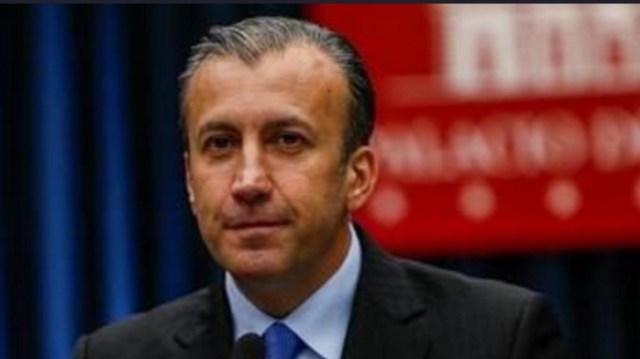
Venezuela’s government has unleashed a new campaign targeting municipal and state officials, police commanders and prosecutors allegedly involved in extortion and drug trafficking, yet its scope raises questions in a country recently listed as the world’s fourth most corrupt.
By Insight Crime
Feb 3, 2022
On January 31, four high-ranking members of the Bolívar state police in Venezuela were arrested for their alleged participation in extortion, among other crimes. The same day, Oil Minister Tareck El Aissami announced on Twitter the arrest of Delta Amacuro’s attorney general, accusing him of fuel smuggling.
Both arrests fell under the umbrella of Operation Mano de Hierro (Iron Fist), which was first announced on January 28 by the country’s national anti-drug chief, Richard López Vargas.
According to Vargas’ public statement, President Nicolás Maduro himself ordered the operation, which began targeting officials allegedly involved in drug trafficking. Arrests included two National Assembly representatives, Zulia’s Taína González and Táchira’s Luis Viloria Chirinos, as well as the mayor of Zulia’s Jesús María Semprún municipality, Keyrineth Fernández. They, and a Colombian national, were accused of facilitating the transport of drugs from the Colombian border region to La Guaira port, Vargas said.
Since then, Operation Mano de Hierro has been billed as an anti-corruption campaign. Diosdado Cabello, the vice president of the United Socialist Party of Venezuela (Partido Socialista Unido de Venezuela – PSUV) stated at a press conference that the party is “absolutely intolerant of corruption.”
He highlighted that the politicians accused of drug trafficking were immediately ejected from the PSUV and that there would be no impunity.
InSight Crime Analysis
None of those arrested so far under Operation Mano de Hierro have been politicians of real influence, despite credible claims of corruption at the highest levels of government. Rather, this operation falls in line with a historical strategy of using high-profile operations to hide the government’s inability – or unwillingness – to combat organized crime.
The operation’s name evokes memories of the 2018 Operation Manos de Metal (Metal Hands) which, on the surface, targeted leaders of violent gangs in Venezuela’s mining region. Multiple sources consulted by InSight Crime, rather, believe that it was intended to bring those gangs to heel for the government’s benefit.
And on Twitter, Tareck El Aissami used the hashtag “CaigaQuienCaiga,” when announcing arrests linked to Mano de Hierro. This is the operation’s official motto, which roughly translates to “whoever falls, falls” and implies that no one involved in corruption is safe, no matter how high up they are on the political ladder.
It’s a good motto, but one that is undermined by the fact that El Aissami himself faces a 2019 US indictment on charges of drug trafficking and money laundering. He is not alone, in 2020, the US Department of Justice also indicted President Maduro and 14 other current and former Venezuelan officials on charges of narco-terrorism, drug trafficking, and corruption.
In the case of Operation Mano de Hierro, some analysts have suggested that the real goal is to continue a rehabilitation of Maduro’s image following local elections last year and in preparation for presidential elections scheduled for 2024.
…
Read More: Insight Crime – Are arrests of Venezuela officials simply for show?
…

